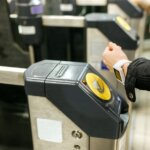Tech training gets BNPL reboot

Buy now pay later (BNPL) has emerged as a strong play in the fintech sector. And while you may be familiar with some of the big names such as Affirm, Klarna, Sunbit, and Zilch, opportunities for spreading the cost of purchases go beyond retail. Fresh thinking on education financing is seeing BNPL products being deployed across a range of course areas. Topics of interest in the technology sector include software development; business and leadership; data science; web design and user experience; cybersecurity; artificial intelligence (AI), motion graphics, and more.
Growing fast
Even though it’s still a relatively recent product category in the fintech-reimagined world of finance, BNPL has matured rapidly. A popular feature, BNPL has quickly gained ground as a way for consumers to spread payments at low cost (sometimes zero cost). BNPL gives shoppers an alternative to using traditional credit card services, which in many cases carry annual fees. In addition, credit cards attract high-interest rate charges on purchases once the interest-free window has passed. Shoppers whose credit card applications are rejected may still be able to qualify for some BNPL services.
Today, consumer spending is being squeezed on various sides. High inflation and movements in currency markets are pushing up the cost of goods, while price pressures originating from the Ukraine conflict affect energy prices. Given these constraints, it’s easy to see why BNPL appeals to shoppers whose money doesn’t stretch as far as it used to. Worried about losing customers in a tricky economic climate, retailers have come on board. Vendors typically pay a fee to BNPL providers for transactions that are serviced through their channels. And having BNPL functionality at the till point, particularly when shoppers are browsing online, can help in other ways too.
For internet-only retailers, BNPL allows customers to try before they buy and takes some of the indecision out of the shopping equation. Converting clicks into sales is key for online vendors and financial products that smooth the path are valuable to retailers. Surveys in 2021 and 2022 showed that more than 50% of US shoppers had used some kind of BNPL service. And analysis conducted by Juniper Research, a UK-based market research firm specializing in mobile and digital tech sectors, estimates that the number of BNPL users could climb by over half a billion in the next five years.
Lifelong learning
In the retail sector, clothing and electronics are popular product categories for BNPL transactions. But, as mentioned earlier, new providers are joining the scene and taking fintech tools into different territories. In the tech education sector, firms such as Knoma – which is part of London’s fintech scene – helps education providers to ‘reach a new audience of would-be career changers and upskillers’ by enabling students to pay their course fees in installments. Tools and techniques change rapidly in the digital sector; workers often want to switch up their skills or jump into a new area. IT is also ripe for new entries into the profession, inspired by opportunities in data science, cybersecurity, and the demand for AI skills.
Founded in late 2018, Knoma’s mission has inspired investors. The company raised £21 million in 2020 and a further £3.1 million this year, on top of earlier seed funding. Revenue primarily comes from course providers who are charged when learners chose to use Knoma’s BNPL services. The system covers tuition costs up to £10,000, which are paid directly to the course provider. Students who settle their tuition payments – which are spread over 12 months – on time incur no additional fees or interest, according to the firm’s FAQs.
Acudemy, Data Science Dojo, Code Clan, iO Academy, Wild Code School, Allwomen, Ironhack, AIcore, and Le Wagon, are just a few of the training providers that have partnered with Knoma to enable more flexible payment of courses and bootcamps across a wide range of tech topics. Clicking on the course details takes potential students to a downloadable syllabus where learners can find out details on the curriculum, including any prep work that’s required.
Open banking
Knoma’s founder and CEO, Brett Shanley, formed his first startup – dubbed ZeeFi – in 2016, which provided ‘Study now pay later’ options for learners in Australia. And wanting to build on the concept, he returned to the UK where open banking regulations were making the country attractive for innovators to test fintech ideas in the market.
BNPL is extending into other new sectors too – for example, enabling dental patients to spread the cost of their bills. Opticians and auto repair shops are also signing up for fintech payment services, as can be seen from the case studies on Sunbit’s website. However, as the number of BNPL services ramps up globally (recall Juniper Research’s prediction), governments are taking a closer look at the sector to make sure that customers have the same level of protection as they would in the traditional finance world.
“Buy-Now Pay-Later credit agreements can be a helpful way to manage your finances, allowing people to spread the full cost of a purchase over time,” writes the UK government. “However, people do not currently have the usual full range of borrower protections when taking out this type of loan and they are rapidly increasing in popularity, resulting in a potential risk of harm to consumers.” And authorities are consulting with the fintech sector to make sure that everyone is able to benefit safely from fresh thinking in digital payments services.









